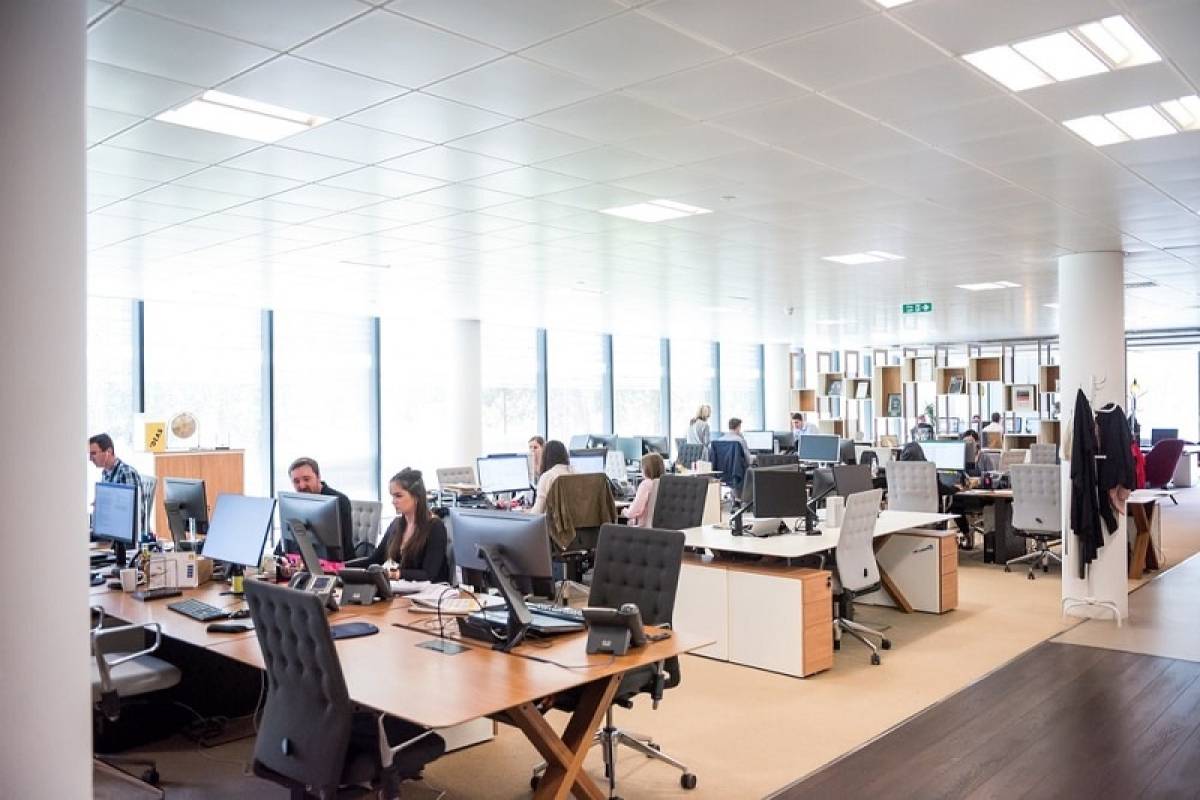5 Things That Make Up an Ideal Workplace

Generally, an ideal workplace is one where happy employees are paramount for the business, particularly if the goal of the business or organization is to optimize workplace productivity.
The ideal workplace has its culture built around creating job satisfaction among the employees, while also building loyalty and morale. It is a place that has gained a competitive edge in attracting the best talents over time and that records very low employees’ turnover.
When it comes to a small business setting, an ideal workplace is successful owing to the fact that employees are motivated to give their all to drive success.
If you are looking to build an ideal workplace, you must be proactive in making it happen. Apart from ensuring that you have the right equipment and facilities to facilitate productivity for your team, there are a few other things you must factor in that make up an ideal workplace.
Factors That Make Up an Ideal Workplace
Here’re key things that make up an ideal workplace businesses and organizations should cultivate:
1. Employees are valued
Employees spend a fair share of their time working in the company, so they know it from inside out. They interact with customers and suppliers on your behalf, meaning that they receive comments and suggestions firsthand from the horse’s mouth.
Being your eye in most aspects of your business, the employees certainly have more insight on the company than you have. As such, conducting employees’ engagement survey is one way to obtain insight, but they will only be willing to share information if you have a culture of acting on it in a constructive and positive way.
A workplace where employees’ input is valued fosters loyalty and commitment, and it makes them feel included and an important aspect of the business.
An ideal workplace takes employees’ input in high regard and even involves the same employees further in implementing their suggestions.

2. Employee growth is supported
The goal of every employee is to grow their skills and knowledge for the betterment of their careers. An ideal workplace recognizes that walking in this journey with the employee communicates their commitment to the employee.
Thus, the leadership in the ideal workplace takes it upon themselves to invest in the growth and development of the employees by arranging for the company to organize and pay for training courses and learning programs on their employees’ behalf.
The managers hold the employees’ hands by offering guidance and giving honest feedback in the employees’ day-to-day work. When positions open up in the company, an ideal workplace gives its own staff and employees the first priority to take up the role before looking outside.
When employees feel that the employer is playing an active role in supporting his or her career progress, it boosts employee satisfaction and rarely will the employee want to leave.
3. Work-life balance is fostered
One of the biggest struggles among employees is achieving a work-life balance. Most feel the need to sacrifice their personal life in order to meet goals at their workplaces. The result is demotivated people with very low productivity.
An ideal workplace understands the importance of having a life outside work, and goes ahead to provide working conditions that promote this. It offers flexible working conditions, such as reduced workdays and remote working to allow the employee have time for their personal lives.
While it may seem as though only the employee benefits from this, an employer has a lot to gain from a happy employee who has a healthy work-life balance.
A person has the leeway to work from a coworking space in Los Angeles after spending a few hours cruising around the Griffith Observatory or taking a leisure walk in downtown L.A savoring the rich architectural heritage, for example, will be stressed and more productive than others.
4. There is clear and effective communication
No one wants to work in a chaotic place with no clear channels of communication. Clear communication is important to avoid conflicts and misunderstandings in the workplace.
When there is no effective communication up and down in the workplace, everyone works on his or her own page, rather than pulling in one direction towards a common goal. Without clear communication, proper interactions with colleagues, managers and customers is hindered.
An ideal workplace ensures that any information is clearly and promptly communicated. This includes the goals and expectations of each employee, as well as the company’s objectives and arising issues.

5. Fair compensation and perks are provided
One of the things people are keen about choosing a workplace is the salary offered. Everyone wants to work in a place where there is fair compensation for hard work.
An ideal workplace is fair in compensating talents with the best wages possible. In addition, it makes sure that there are attractive perks that accompany wages.
Workplace perks can include insurance covers, child care services, and other creative ways such as a kitchen, meditation rooms, social hours and allowing pets to work among others.
Conclusion
An ideal workplace can seem like it’s hard to achieve, but it all boils down to making employees, managers and customers happy playing their roles.
The decision to value and mind everyone in the workplace helps one and all on their own journey, and it allows time to do those things that you love and that rejuvenate you.
That is central to creating an ideal workplace that attracts and keeps the right people, while also serving clients and customers in the best way.
Originally published - Aug 2022.



















